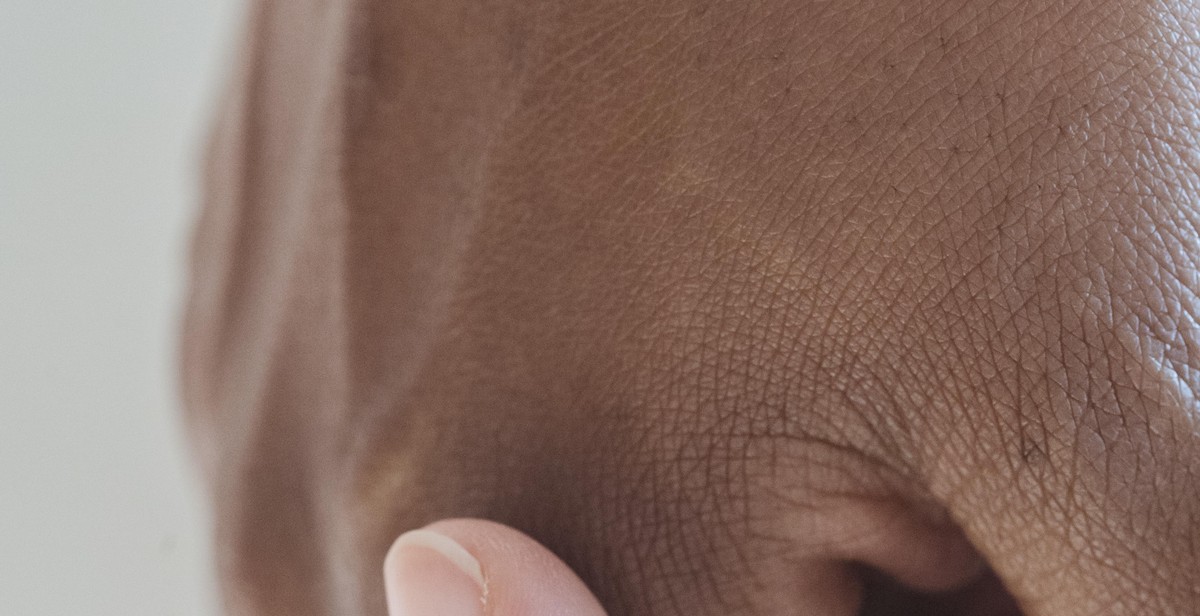Recovering from Infidelity: A Step-by-step Guide
Infidelity can be one of the most painful experiences in a romantic relationship. It can cause intense emotional distress, feelings of betrayal, and a loss of trust. However, it is possible to recover from infidelity and rebuild a healthy, loving relationship.
As a love and relationships psychology guru, I have seen many couples overcome infidelity and create stronger, more fulfilling partnerships. In this article, I will provide a step-by-step guide to recovering from infidelity. I will draw on my personal experience as a professional writer and content creator, as well as my expertise in love and relationships psychology.
What is Infidelity?
Infidelity is the act of being unfaithful to a partner. It can take many forms, including emotional affairs, physical affairs, and online affairs. Infidelity can occur in any type of relationship, from long-term marriages to new romantic partnerships.
The Impact of Infidelity
Infidelity can have a profound impact on both partners in a relationship. It can cause feelings of anger, hurt, and betrayal, and can lead to a loss of trust and intimacy. However, with the right approach, it is possible to heal and rebuild a stronger, more resilient relationship.

Step 1: Acknowledge Your Emotions
Recovering from infidelity is a challenging process that requires a lot of emotional strength and resilience. The first step towards healing is acknowledging your emotions and allowing yourself to feel them.
The Initial Shock
When you first learn about your partner’s infidelity, it’s normal to experience a range of intense emotions. You may feel shocked, betrayed, angry, or devastated. This initial shock can be overwhelming, and it’s important to give yourself time to process what has happened.
During this time, it’s crucial to take care of yourself and seek support from loved ones. Talk to a trusted friend or family member who can listen without judgment. Consider seeking the help of a therapist who can provide you with coping strategies and emotional support.
The Rollercoaster of Emotions
As you move through the recovery process, you may experience a rollercoaster of emotions. Some days you may feel hopeful and optimistic, while other days you may feel angry, sad, or overwhelmed. These emotions are all normal and part of the healing process.
It’s important to be patient with yourself and allow yourself to feel whatever emotions come up. Don’t try to suppress or ignore your feelings, as this will only prolong the healing process. Instead, practice self-care and seek support when you need it.
- Take time for yourself
- Engage in activities that bring you joy
- Practice mindfulness or meditation
- Join a support group
Remember, recovering from infidelity is a process, and it takes time. Be gentle with yourself and focus on taking small steps towards healing each day.

Step 2: Communicate With Your Partner
Communication is key in any relationship, but it is especially important when recovering from infidelity. It is crucial to be open and honest with your partner about your feelings, concerns, and needs.
The Importance of Communication
When infidelity occurs, it can be difficult to know where to start when it comes to communicating with your partner. However, avoiding difficult conversations will only make matters worse in the long run. By communicating openly, you can begin to rebuild trust and intimacy in your relationship.
Effective communication can help you and your partner:
- Understand each other’s perspectives
- Express your feelings and needs
- Find common ground
- Develop a plan for moving forward
How to Communicate Effectively
Effective communication involves both listening and speaking. Here are some tips for communicating effectively with your partner:
- Listen actively: Pay attention to what your partner is saying without interrupting or judging.
- Be honest: Share your thoughts and feelings openly and honestly.
- Use “I” statements: Instead of blaming or accusing, use “I” statements to express how you feel.
- Stay focused: Stick to the topic at hand and avoid bringing up past issues.
- Take breaks: If emotions are running high, take a break and come back to the conversation later.
Remember, effective communication takes practice. It may be helpful to seek the guidance of a therapist or counselor to help you and your partner navigate difficult conversations.

Step 3: Seek Professional Help
Infidelity can cause a lot of emotional pain, and it’s important to seek professional help to aid in the recovery process. Therapy can help individuals and couples navigate the complex emotions that arise after infidelity, and it can provide tools for rebuilding trust and communication.
The Benefits of Therapy
Therapy offers a safe and supportive space for individuals and couples to process their emotions and work through the aftermath of infidelity. A therapist can help you:
- Identify and address underlying issues that may have contributed to the infidelity
- Develop healthy coping mechanisms for dealing with intense emotions
- Learn effective communication skills to rebuild trust and intimacy
- Develop a plan for moving forward and rebuilding your relationship
How to Find a Good Therapist
When looking for a therapist, it’s important to find someone who specializes in infidelity recovery and has experience working with couples. Here are some tips for finding a good therapist:
- Ask for referrals from your doctor, friends, or family members who have been through infidelity recovery.
- Search online for therapists in your area who specialize in infidelity recovery.
- Check the therapist’s credentials and verify their license with your state’s licensing board.
- Ask for a consultation to see if the therapist is a good fit for you and your partner.
| Tip: | Don’t be afraid to shop around until you find a therapist who you feel comfortable with and who understands your needs. |
|---|
Remember, recovery from infidelity is a process, and it takes time and effort. Seeking professional help can provide the support and guidance needed to heal and move forward.

Step 4: Rebuilding Trust
Rebuilding trust is a critical step in recovering from infidelity. It is a gradual process that requires patience, commitment, and effort from both partners. It is important to understand that trust cannot be restored overnight. It takes time and consistent actions to rebuild trust.
The Process of Rebuilding Trust
The process of rebuilding trust involves several stages:
- Acknowledge the betrayal: The first step in rebuilding trust is for the unfaithful partner to acknowledge the betrayal and take responsibility for their actions. They need to show genuine remorse and apologize for the hurt they have caused.
- Be transparent: The unfaithful partner needs to be open and transparent about their activities and whereabouts. They should willingly share their phone and email passwords, and allow their partner to check their phone and social media accounts if needed.
- Keep promises: The unfaithful partner needs to keep their promises and commitments. If they say they will be home at a certain time, they need to be home at that time. If they promise to do something, they need to follow through.
- Show empathy: The unfaithful partner needs to show empathy and understanding towards their partner’s pain and hurt. They need to be patient and supportive, and listen to their partner’s concerns and feelings.
Actions That Build Trust
Actions speak louder than words when it comes to rebuilding trust. Here are some actions that can help build trust:
- Be honest: Honesty is crucial in rebuilding trust. Both partners need to be honest with each other about their feelings, concerns, and expectations.
- Be reliable: Reliability is another important factor in building trust. Both partners need to be reliable and follow through on their commitments.
- Show appreciation: Showing appreciation and gratitude towards each other can help build trust and strengthen the relationship.
- Communicate effectively: Effective communication is key in rebuilding trust. Both partners need to listen to each other, express their feelings clearly, and work towards resolving conflicts in a respectful and constructive manner.
Rebuilding trust takes time and effort, but it is possible. With patience, commitment, and the right actions, couples can heal from infidelity and build a stronger, more resilient relationship.

Step 5: Forgiveness
After infidelity, forgiveness can be one of the most difficult steps in the recovery process. However, it is a crucial step to move forward and heal the relationship.
What Forgiveness Means
Forgiveness does not mean forgetting what happened or excusing the behavior. It also does not mean that the hurt and pain caused by the infidelity magically disappear. Instead, forgiveness means choosing to let go of the anger, resentment, and desire for revenge.
Forgiveness is a process and may take time to fully achieve. It involves acknowledging the hurt caused by the infidelity and accepting that it happened. It also involves a willingness to work towards rebuilding trust and repairing the relationship.
How to Forgive
Forgiveness is a personal choice and may not be possible for everyone. However, for those who are willing to forgive, here are some steps to take:
- Express your feelings: Talk to your partner about how the infidelity made you feel and the impact it had on you.
- Practice empathy: Try to understand why your partner may have cheated and what led to the behavior.
- Let go of resentment: Holding onto resentment only hurts yourself. Choose to let go of the negative emotions and focus on moving forward.
- Work towards rebuilding trust: Forgiveness does not mean blindly trusting your partner again. It is important to work towards rebuilding trust through open communication and honesty.
- Seek professional help: If forgiveness feels impossible or the healing process is not progressing, seek the help of a therapist or counselor.
Remember, forgiveness is a personal choice and may not be the right decision for everyone. It is important to take the time to process your feelings and make the best decision for yourself and your relationship.

Step 6: Moving Forward
After going through the previous steps of recovering from infidelity, it’s time to create a new relationship dynamic with your partner. This means establishing new boundaries, communication methods, and expectations for your relationship moving forward. It’s important to have an open and honest conversation with your partner about what you both want and need from each other.
Creating a New Relationship Dynamic
One way to create a new relationship dynamic is to establish new boundaries. This may mean setting limits on communication with people outside of the relationship or being more transparent about your whereabouts. It’s important to make sure these boundaries are mutually agreed upon and that both partners feel comfortable with them.
Another important aspect of creating a new relationship dynamic is to establish better communication methods. This may mean scheduling regular check-ins or therapy sessions to ensure that both partners are on the same page and are addressing any issues that arise in a healthy way.
The Importance of Self-Care
Throughout the process of recovering from infidelity, it’s important to prioritize self-care. This means taking time for yourself to focus on your own physical, emotional, and mental well-being. This may include seeking therapy or counseling, practicing mindfulness or meditation, or engaging in activities that bring you joy and relaxation.
Remember that healing from infidelity takes time and effort from both partners. By creating a new relationship dynamic and prioritizing self-care, you can move forward and build a stronger, healthier relationship.
